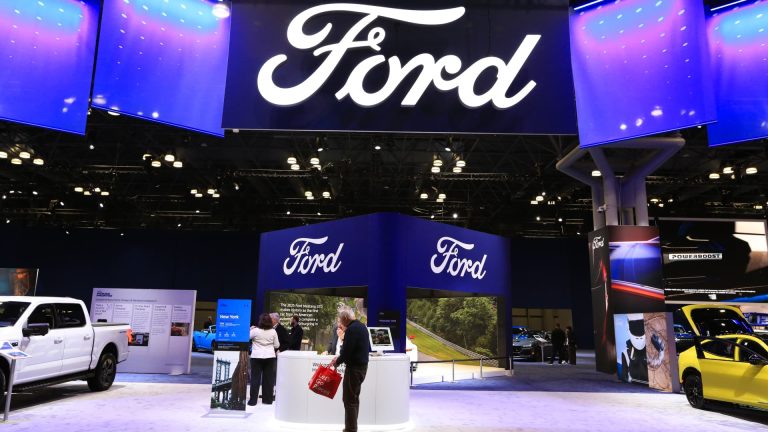
Here are five key things investors need to know to start the trading day:
1. Off cloud nine
2. Tariffs for Tinseltown?
FILE PHOTO: U.S. President Donald Trump (R) stands with actor Jon Voight outside the Oval Office before departing from the South Lawn of the White House in Washington, DC on January 28, 2020.
Mandel Ngan | AFP | Getty Images
Shares of Hollywood studios and streaming services dropped Monday morning after Trump proposed a 100% tariff on movies made overseas. The president’s announcement — which did not specify how the duty would be implemented — came after he met with actor Jon Voight and Voight’s manager. The two men said they proposed a plan to “increase domestic film production” to Trump, part of which included imposing tariffs on films produced outside the U.S. But Trump dialed back his language Monday after uproar from the film industry, saying he’d “meet with the industry” to “make sure they’re happy” with the proposed tariff policy. Many studio stocks pared their losses by the end of the trading day, but Netflix and Warner Bros. Discovery still closed down 2%.
3. Never mind, still nonprofit
Sam Altman, co-founder and CEO of OpenAI, speaks during the New York Times annual DealBook Summit at Jazz at Lincoln Center in New York City on Dec. 4, 2024.
Michael M. Santiago | Getty Images
ChatGPT developer OpenAI will continue to be controlled by a nonprofit even as it restructures into a public benefit corporation, the artificial intelligence firm said Monday. The announcement follows pressure from ex-employees, researchers, civic leaders and, most notably, Elon Musk on the company amid its attempt to become a for-profit organization. OpenAI is currently engaged in a bitter legal battle with Musk, who cofounded the company as a nonprofit research lab in 2015 and is now trying to prevent the company from transitioning to a for-profit entity. The AI startup said in a blog post Monday that it made the decision to remain controlled by a nonprofit after discussions with the attorneys general of California and Delaware.
4. Suspension
The Ford display is seen at the New York International Auto Show on April 16, 2025.
Danielle DeVries | CNBC
Ford Motor suspended its 2025 financial guidance Monday, citing “near-term risks, especially the potential for industrywide supply chain disruption impacting production” and the potential for more tariffs as reasons it pulled its outlook. The automaker expects a $2.5 billion impact from President Trump’s tariffs this year, but the company said it believes it can offset $1 billion of those costs, bringing the total impact down to $1.5 billion. Without the tariffs, Ford said it was “tracking” toward its initial guidance that it issued in February. Ford beat Wall Street’s top- and bottom-line expectations for the first quarter.
5. Shopping cart strain
Miami, Hialeah Gardens, Florida, Walmart Supercenter, checkout line cashier, customers paying.
Jeff Greenberg | Universal Images Group | Getty Images
Hispanic Americans are spending less on groceries, and consumer companies are feeling the pressure. Hispanic consumers — the second largest demographic in the U.S. — spend more on consumer packaged goods overall than non-Hispanic consumers, but the Trump administration’s hard-line immigration stance and broader economic concerns are causing the group to pull back their spending, according to some experts. Coca-Cola, Constellation Brands and Colgate-Palmolive have all recently reported a slowdown in North American sales from Hispanic shoppers. The trend, combined with tariffs, caused Constellation to issue a weaker-than-expected outlook for fiscal 2026 last month, the Corona owner said.
— CNBC’s Pia Singh, Hakyung Kim, Sarah Whitten, Dan Mangan, Christina Wilkie, Hayden Field, Michael Wayland, Amelia Lucas and Brandon Gomez contributed to this report.

